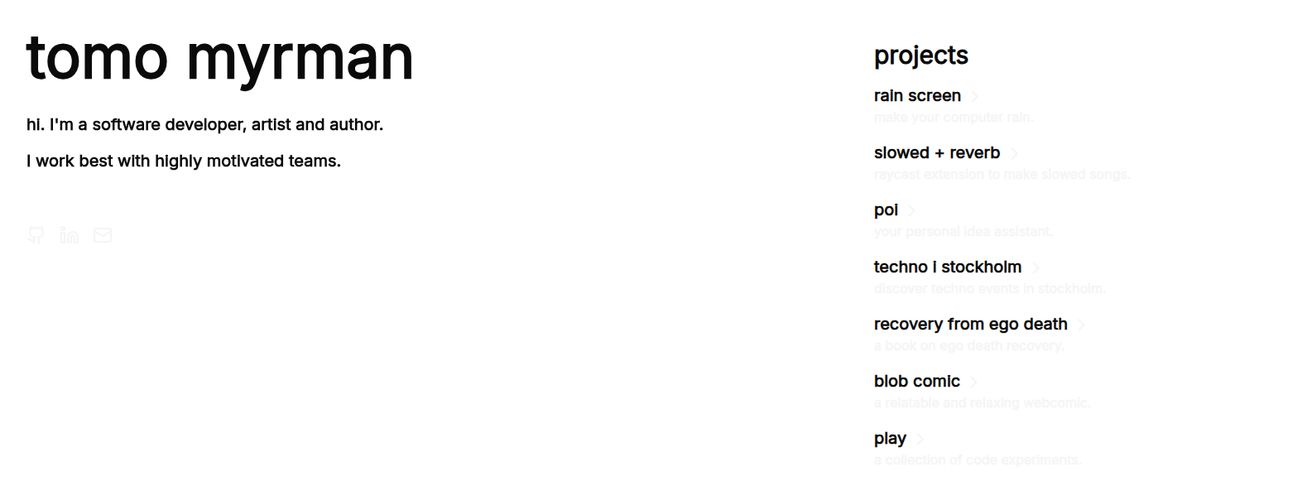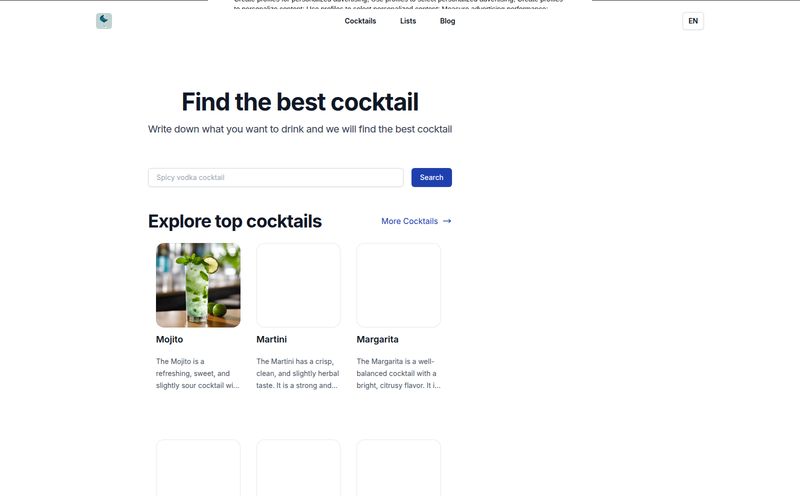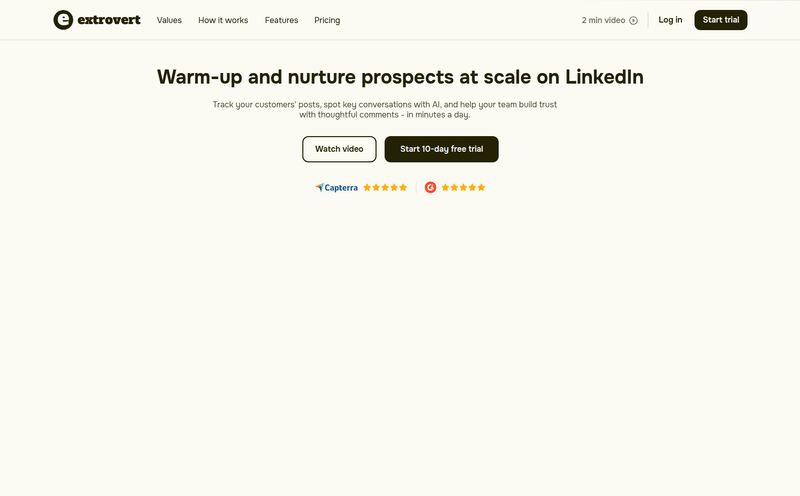Every now and then, a tool pops up on my radar that makes me stop scrolling and just stare for a second. It's not usually the flashy design or the over-the-top marketing promises. It's the sheer audacity of the concept. That’s exactly what happened when I came across Jellow and its underlying engine, And-GPT.
We’ve all been drowning in a sea of AI tools for the past couple of years, right? AI writers, AI image generators, AI for your spreadsheets... it's a lot. Most of them are pretty neat, but they still require you to be in the driver's seat. You have to feed them prompts, tweak the outputs, and integrate them into your workflow. Jellow, powered by And-GPT, seems to want to flip that script entirely. It doesn’t just want to help you with a task; it wants to do it for you. From start to finish. A bit creepy? Maybe. Intriguing? Aboslutely.
So, What is Jellow and And-GPT Anyway?
Let's get the names straight first. Jellow appears to be the name of the platform or app. And-GPT is the brain behind the operation. The description I found says it's an “AI agent that uses the latest GPT-4 technology to understand your goals and automatically break them down into smaller tasks.”
Think about that for a second. You don't give it a specific command like 'open Spotify and play my Discover Weekly.' You give it a goal. Something like, “Find three recent articles about the latest Google algorithm update and summarize them for me.”
And-GPT is then supposed to figure out the rest. It decides it needs to open a web browser, perform a few searches, click on relevant links, read the content, and then open a notes app to write the summary. It's like a tiny, digital intern living on your device who doesnt need coffee breaks.

Visit jellow
This is a major leap from the current automation tools we're used to, like Zapier or IFTTT. Those are brilliant, don't get me wrong, but they are based on rigid “if this, then that” rules. And-GPT is designed to be dynamic, using the reasoning power of GPT-4 to navigate the messy, unpredictable world of apps and websites. It's less of a pre-programmed robot and more of a problem-solving entity.
How This Thing Supposedly Works
The magic, or what they claim is magic, lies in its process. It's not just a single action, but a chain of thought turned into action. First, you state your goal in plain English. Then, the And-GPT model, with its GPT-4 core, deconstructs that goal into a logical sequence of sub-tasks. It then identifies the right application for each step—be it Chrome, your email client, or a specific social media app. Finally, and this is the wild part, it actually operates the app, mimicking human interactions to get the job done. It's a fascinating and slightly terrifying concept all at once.
The Shiny Bits: What I Like About This Idea
True Automation, Not Just Shortcuts
As someone who spends way too much time on repetitive SEO tasks—pulling reports, compiling competitor data, checking rankings—the appeal here is massive. The idea of an agent that can handle a multi-app workflow like 'Check Ahrefs for new backlinks, cross-reference them with our CRM, and email me a list of uncontacted high-authority domains' is, frankly, the dream. It’s the difference between having a calculator and having an accountant.
Powered by the GPT-4 Brain
The fact that it’s built on GPT-4 is a big deal. We've all seen how capable large language models are at understanding nuance and intent. That's the secret sauce here. It's not just matching keywords; it’s comprehending a goal. This allows for a level of flexibility that rule-based systems just can't match. It can, in theory, adapt to unexpected pop-ups, website layout changes, or slight variations in your request.
Let's Pump the Brakes: The Red Flags
Of course, with great power comes… well, a lot of questions. My professional skepticism kicked in pretty hard, and there are a few elephants in this digital room we need to talk about.
The Big Privacy Question
This is the big one. For And-GPT to work as advertised, it needs some serious permissions. We're talking about accessibility services, the ability to read your screen, and control other apps. It would essentially see everything you see and be able to do everything you can do on your device. In my experience, even the most well-intentioned companies can have security vulnerabilities. Handing over the keys to my entire digital kingdom to a single AI agent? That requires a level of trust that, honestly, I don't think any company has earned yet. It's a massive privacy and security consideration that can't be brushed aside.
When the AI Gets It Wrong
What happens when the AI misunderstands a command and, say, deletes the wrong file or sends a half-finished, gibberish email to your biggest client? The reliance on the AI's interpretation is both its strength and its biggest potential weakness. Without a human in the loop to sanity-check its plan of action, things could go wrong in spectacular fashion. Some might argue that the efficiency gains are worth the risk, but I think we'd need some pretty robust safeguards and 'undo' functions before this becomes mainstream.
A Bit of a Black Box
Right now, there's not a ton of information out there about Jellow or And-GPT beyond the initial concept. The website is sparse. There are no deep-dive demos, no technical whitepapers, no public betas that I can find. This lack of transparency makes it hard to evaluate the tech properly. Is it a functioning prototype or just a very cool concept at this stage? We don't know.
So, What About the Price Tag?
This is another mystery. There's no pricing page, no mention of subscription tiers, nothing. It's probably too early in their development. But one can speculate. Will it be a monthly subscription like most SaaS products? Maybe a tiered system based on the number of automated tasks per month? Given the power of the underlying GPT-4 API, I'd be very surprised if this was a cheap or one-time purchase tool. I'm betting on a premium subscription model, probably starting north of $20/month for any meaningful usage.
FAQs About Jellow and And-GPT
- What is Jellow?
- Jellow is the user-facing platform that uses And-GPT, an AI agent, to automate tasks across different applications on your device based on your goals.
- How is And-GPT different from other automation tools?
- While tools like Zapier work on pre-set 'if-then' rules, And-GPT uses the reasoning of GPT-4 to dynamically create and execute a workflow to achieve a goal, deciding which apps to use on the fly.
- Is And-GPT safe to use?
- This is a major concern. It requires extensive permissions to control your device, which raises significant privacy and security questions. Potential users should approach with caution and wait for more information on its security architecture.
- What technology does And-GPT use?
- It's built on OpenAI's GPT-4, a powerful large language model known for its advanced reasoning and language understanding capabilities.
- Is Jellow free?
- There is currently no pricing information available. However, given the technology involved, it is highly likely to be a paid, subscription-based service.
- When will Jellow be available to the public?
- Information on a public release date is not yet available. It appears to be in the early stages of development.
My Final Thoughts on This New Frontier
So, where do I land on Jellow and And-GPT? I'm cautiously optimistic, with a heavy dose of skepticism. The concept is genuinely exciting and represents what feels like the next logical step in personal computing and AI. The potential to streamline workflows, especially in data-heavy fields like SEO and digital marketing, is immense.
However, the hurdles are just as massive. The privacy implications are profound, and the potential for error is high. It’s a tool I will be watching very, very closely. I'm not ready to install it tomorrow, but I'm definitely rooting for them to solve these challenges responsibly. If they can build a secure, reliable agent and be transparent about it, they might just change how we interact with our devices forever. Now that’s a trend worth tracking.
Reference and Sources
- Initial information and concepts sourced from the Jellow promotional materials.
- General knowledge about automation platforms based on experience with tools like Zapier.
- Information on the underlying model from OpenAI's GPT-4 page.



